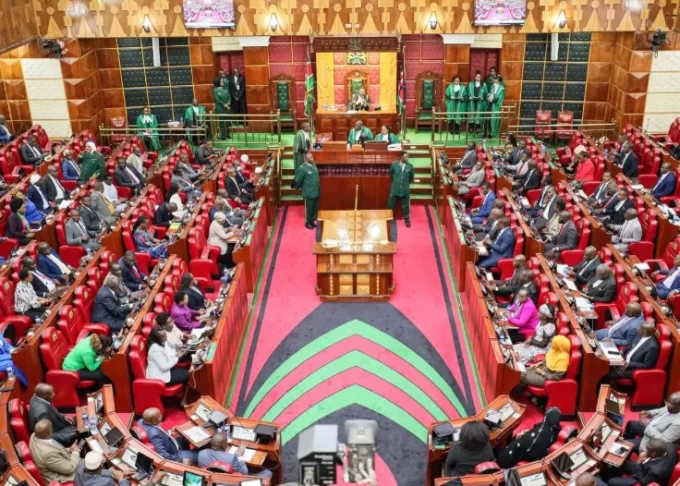Kenyan artists can look forward to making more from ring back tune services including Safaricom’s Skiza after Parliament passed the Copyright Amendment Bill on February 24.
The bill fixes the minimum share of the net revenue generated from the sale of ring back tunes, to the artiste or owner of the copyright, at not less than fifty two per cent.
Once effected, it would represent an increase from the 40% share artists currently receive. Artists’ share of Skiza Tunes revenue was increased by Safaricom in August 2021 by a third from 30% to 40%.
At the time of Skiza Tunes’ launch in 2009, artists received only 7.5% of revenues from the service which today has over 9 million users. Intense lobbying by artist representative groups led to the figure being raised to 30% in 2017.
Dagoretti South MP John Kiarie who alongside Uriri MP Mark Nyamita moved the amendment to fix the artists’ share at 52% explained why.
READ>>In Copyright Bill Change, a Big Win For Kenya’s Creative Industry
“What I am attempting to do is give enough lee-way for the artists as they go to negotiate and to have enough maneuver space,” he stated, referencing artists’ negotiations with telcos.
Homa Bay Women Representative Gladys Wanga, who chairs the Finance Committee, added: “The other thing that encouraged me is when Safaricom came to us and said for example that if the technology price remained lower, the artiste is not tied to 52 percent the artiste can add to 55 or 60 percent.”
The bill was notably passed following the reversal of a controversial change that would have repealed internet service providers’ (ISPs) liability provisions and the procedures for notice and take-down by repealing Section 35B of the Copyright Act.
Wanga withdrew the amendment which had attracted widespread criticism from artists and other stakeholders who deemed it a legalization of piracy.
“I am extremely happy that Gladys Wanga saying that she had a monkey on her back but she did not know who owned that monkey. I am glad she has shed that monkey and today we will be happy to pass this knowing that Section 35 shall not be touched,” Kiarie stated.
The bill also includes a provision enabling artists to directly receive their share of revenues. Currently, they go through middlemen in the form of rights management companies and societies which have long been accused of exploitation and other unethical practices.
“The person we are trying to protect here is the artist, because there is a lot of money politics within the CBOs that if asked, the artiste would gladly collect their money directly from the platform owner in order to reduce the broken telephone that is between the tripartite players,” Kiarie stated.

![Nikita Kering performs 'Ex' at Carnivore Simba Saloon on December 15, 2021 during the launch of Safaricom's Baze Music app. The company also runs Skiza Tunes, the leading ring back tune service in Kenya. [Photo/ @SafaricomPLC]](https://businesstoday.co.ke/wp-content/uploads/2022/02/FGqrB-eX0AMQzIL-696x464-1.jpg)
![CBK Governor Dr. Patrick Njoroge at a past press conference. The CBK has published the National Payments Strategy 2022-2025. [Photo/ KNA]](https://businesstoday.co.ke/wp-content/uploads/2022/02/DSC_2070-e1580293099701-150x150.jpg)










Leave a comment